+Bernd+Wendt.jpg)
Photo Bernd Wendt
For about 40 years, Michael Peters has explored the world looking for new sounds. Michael's main instrument is the guitar - he studied with Robert Fripp and also is influenced by guitarists David Torn, Eivind Aarset, and Fred Frith. He extends the guitar using electronic effects, midi, and livelooping techniques. His main body of work relies on solo improvisations with guitar and computer. He has played in avant rock and open improvisational groups.
+Sabine+Schachtner.jpg)
Photo Sabine Schachtner
He also has experimented with sampling and cutting up random FM radio broadcasts to use as elements in live improvisation, and he used field recordings, granular synthesis, fractal algorithms, and generative processes to create improvisations, soundscapes, compositions, and sound installations.
+George+Wiltshire.JPG)
Photo George Wiltshire
Michael is a seminal and pivotal member of the Chain Tape Collective, a group of dozens of electronic and electro-acoustic composers whose musicians create collaborative music projects together.
+Michael+Bearpark.JPG)
Photo Michael Bearpark
He also is a member of Looper's Delight, a very active international community of people who use looping technology for their music making. Since 2005, he performed on numerous international livelooping festivals in Europe and the USA, and he hosted three such festivals in Cologne.
+Georgina+Brett.jpg)
Photo Georgina Brett
Michael Peters lives close to Karlheinz Stockhausen's house in a small village east of Cologne, Germany. He loves to sit on a bench outside, listening ...
+Laure+Sornique.jpg)
Photo Laure Sornique
Which was the first and the last record you bought?
My first LP was a Wergo record with music by Györgi Ligeti. I was 14, and had just gone through a total epiphany seeing the movie ‘2001 A Space Odyssey’. Ligeti’s music was a major part of that for me - captivating and dramatic and sublime while completely outside of any musical tradition. This opened a door for me, and I started listening to avantgarde music, Stockhausen, Penderecki and such. A few years later, I played in a band (called ‘Parsec’) where we did tape music experiments, spoken word collages, free jazz, and all sorts of unusual music. I guess it was in the air at the time, with progressive music taking up all sorts of influences, from electronic avantgarde to early music to sound experiment to jazz. But it was Ligeti who kindled my love for experimental music.
The last record I bought .. I think was Jon Hassell’s 3-CD “City: Works of Fiction” rerelease. Jon Hassell is clearly my all-time favorite musician. Nobody else has offered me such a richness of vision, such enjoyment and bliss. I often thought that his music was custom made for me. It is the soundtrack to an inner very magical Castaneda-esque landscape not unlike Mati Klarwein’s paintings that Hassell used for some of his record covers, not surprisingly. On top of these atmospheres, Hassell has this unique ability to create stunning melodies, perfect combinations of notes that leave me in open-mouthed awe.
How's your musical routine practice?
I don’t have a routine practice. When I was with Robert Fripp’s Guitar Craft during the late 80s until the late 90s, I found that my playing abilities grow instantly when I spend lots of time practising (I was suddenly able to play things that used to be too difficult), but I find that I don’t keep that up at all in my daily life. It seems I’m simply not interested. My ambition to become a ‘good musician’ is zero. I feel more like an explorer who does not know where he is going, and I enjoy that. My playing abilities have grown naturally and quite slowly with playing, without thinking about it.
Similarly, after a start in classical guitar many decades ago, I forgot everything about musical theory and I never earnestly tried to learn that again. I’m simply not drawn to knowing what I do. I can totally relate to what Eno says about his being a ‘non-musician’. In terms of chords and notes and scales, I don’t really know what I’m doing when I improvise, even more so because I’ve been using Fripp’s NST tuning for many years now almost exclusively - I never tried to learn a map of the fretboard in NST. I seem to have a more graphical, geometrical way of playing, I see shapes that don’t have notes written on them. There are lots of chord shapes in my head and I keep finding more of them intuitively, by hearing and trial and error. I am aware that simple ways of learning exist that would put the notes on to those shapes but I seem to prefer them without labels. A jazz guitar teacher told me a few years ago that he had never met a guitarist who couldn’t play but did it so well. (I took this to be a compliment.)
Recently, I’m more and more finding myself consciously playing totally random notes and seeing where this takes me. This is a very interesting exercise, and maybe more than that. It is like taking a walk and then leaving the path, going into the wilderness and through the thicket. Sometimes this will lead you to a beautiful spot that is far away from all paths. Then the next day, you might not find that spot again because this territory is pathless and uncharted. I seem to like that - I enjoy the unpredictability of it.
Knowing exactly what you do in music can lead to great musical results but it can also bind you to what you know. It is difficult for someone who knows a lot to become innocent again. Zen master Shunryu Suzuki coined the term ‘Beginner’s mind’ for a mind that is empty of all knowledge, as a prerequisite for a fresh perspective, for real understanding.
Sometimes it almost seems to me as if I am half-consciously trying to explore this terrain of music blindfolded, being led by intuition alone, depending on “not knowing”. The results are mixed, many might be considered failures, but there are unexpected spots of beauty as well.
I totally trust this process wherever it might take me.
Which work of your own are you most surprised by?
Lots of what I do surprises me in many ways. One example that comes to my mind first: the live set I played in a Cologne cafe called “Vorstadtprinzessin”, released on Bandcamp and Youtube as “Vorstadtprinzessinnenklangwellen” - suburb princess sound waves. It was a little festival and I was last on the list. The place got very crowded but most of the people came to drink and socialize loudly, not to listen to music. The sets that came before me left me bored. When I started, I had a vague idea what I was about to do but I threw that out in a minute. I then spent 50 minutes aimlessly improvising, doing this and that, looking for inspirations but not finding doorways. I became more and more irritated and frustrated and hating what I did - a very unusual state of mind for me. Afterwards I was close to selling all my gear and stopping this music thing for good. People told me how great it had been but I couldn’t feel that at all. Only when I dared to listen to the recording after several days I thought, hey this is great stuff actually. A friend wrote, "this may be the most diverse, complex and interesting loop performance I've ever heard." A surprising experience for sure!
When I perform I mostly improvise. I usually start with a rough idea but leave the rest to the moment. Surprises are the main constituent of this way of music making.
Depict the music you're still looking for
Assuming that the universe is teeming with planets and civilisations, I sometimes wonder: what music is created there? some of it is probably too strange for us but I’m sure there must be musical things going on out there that would speak to us, move us, make us feel alien emotions. Maybe there are even alien rock bands somewhere, playing rock but in a way that it has never been played on Earth. (And I don’t mean the many pathetic ‘alien music’ examples from science fiction movies - this stunning lack of imagination makes me shudder!)
I respect and love music that perfects the known, like Indian classical music for example, but what really excites me is something totally surprising and unforeseeable, like when I heard Edgar Varèse or Michel Redolfi or Gagaku for the first time.
I’m so glad that I can easily open my ears to sounds, whatever they are! The older I get the more I enjoy the experience of listening to the world around me, switching the “I already know this” circuit off so whatever I hear, it is always completely new and fresh. With nature or ambient sounds, this is pretty easy to do. I’m still learning to do that while listening to music that sits squarely in the known. Maybe I’ll eventually be able to listen to Beethoven with curiosity - so far, I can’t seem to do that :)
How do you feel listening to your own music?
I totally love a few things I did but I find that most of what I did remains sketchy, a promise of what could be possible if I _really_ took it seriously, and really worked on it. But apparently this is not my way. New ideas always take me away from that.
Most “serious” artists do one thing, and bundle all their energy to evolve it into perfection. When I look back, I seem to constantly fall in love with new and very diverse ideas before the old ones have a chance to reach a stage of perfection :) I think I am pretty eclectic in that sense. And also, thinking about it now, I seem to thoroughly enjoy imperfection!
What special or extended techniques do you use?
I’m probably most known for my livelooping music. I was a Robert Fripp fan from the start and when he took up livelooping, using a pair of tape recorders, this was immediately very appealing to me, so I started doing the same, around 1980.
Just a year or two ago I dusted off my old Revox machines and reanimated them, doing some ‘Frippertronics’ style livelooping concerts - I was surprised how much today’s audience loves the sound and the look of the rotating tape wheels. I’m doing little workshops for music students, showing them how livelooping is done with tape recorders, so they get to know the basics as they were introduced 50 years ago by Terry Riley who called this system ‘Time Lag Accumulator’.
Just a year or two ago I dusted off my old Revox machines and reanimated them, doing some ‘Frippertronics’ style livelooping concerts - I was surprised how much today’s audience loves the sound and the look of the rotating tape wheels. I’m doing little workshops for music students, showing them how livelooping is done with tape recorders, so they get to know the basics as they were introduced 50 years ago by Terry Riley who called this system ‘Time Lag Accumulator’.
Outside of the tape recorder method, I nowadays use a Windows notebook with Plogue Bidule hosting complex setups of livelooping and other VST plugins. And my guitars have midi pickups. The possibilities of this setup are endless, virtually endless. I don’t think I will ever get bored by this :) At the moment, I research a method of livesampling that allows me to play something, sample it, and immediately afterwards, play the sample on the guitar, polyphonically.

Big fun, especially if combined with livelooping, harmonizers, VST instruments and such. A similar setup with seamless livesampling (rather than on-off sampling) enables me to do self-similar music with fractal structures - very abstract, complex, and hard to master, but very rewarding as it is done in realtime. I am far from being through with that, there is lots to learn.

Setup Livorno 2014
Big fun, especially if combined with livelooping, harmonizers, VST instruments and such. A similar setup with seamless livesampling (rather than on-off sampling) enables me to do self-similar music with fractal structures - very abstract, complex, and hard to master, but very rewarding as it is done in realtime. I am far from being through with that, there is lots to learn.
Of course I also use extended methods of actually playing the guitar. On my last album, Lucid Dream Cities, I often use a multifaceted garnet crystal to bow the strings while shortening the string lengths, creating strange new scales - something that David Torn sometimes does with his pick. Or I feed speech and noise recordings from my mp3 player into the pickups and play with that. Or I use mallets to play the strings, or other objects.
What is your idea of perfect musical happiness?
The moment my improvisation takes off and I don’t have to “do” it myself. Something takes over then, the muse, the flow, whatever you want to call it. Then an effortless confidence is in charge and everything is possible and totally unknown. It is almost as if I become a part of the audience, witnessing my hands play, not knowing what is happening, and I find that what my hands play is mostly new, not consciously coming from the known.
I have learned from Fripp that this is something that happens more and more if you practice a lot and get technically very fluent, and if you ‘clean up your house’, figuratively speaking. To me it doesn’t happen very often although I feel like my house is mostly cleaned up. It happens only if the circumstances are right. I never know beforehand when it happens, it is always a surprise, but it tends to happen in free improvisations with a group of musicians that I trust.
Another music situation that makes me perfectly happy is when I sit beside a pond somewhere and listen to my hydrophone via the headphones, recording the mysterious sound world under water and the voices of fish and water insects, or when I listen to the internal sounds in plants or fences or other objects transmitted with contact microphones. That says much about the sound explorer part of me I guess.
What were your craziest projects about?
The fractal algorithmic music released as “Impossible Music” was pretty crazy
… or the realtime radio collages released as “Cut-Up Radio”
... or the year 2000 diary “MY2K” which consisted of very diverse 10 second recordings every day
The craziest was probably the recently released ‘Silence Project’ which produces music mostly consisting of silence, interspersed by occasional short sounds, more than 300 of them, provided by 20 composers.
Dream about your perfect instrument
That would be something directly transmitting the music from my brain. Of course using traditional instruments is limiting the open space of possibilities in a creative way - playing the guitar with my fingers uses my body intelligence which creates something entirely different from what my brain would create if it had a direct output.
But a direct brain output would be something very magical. I remember silent Zen meditation retreats where I would face a wall for seven days which does many interesting things to your brain. Often after several days of sitting, I would start to hear this music in my head - it was incredibly interesting, intense, complex music unlike anything I had heard before, and loads of it. It was really difficult to let go, I had so much fun listening to that. I was glad that I wasn’t musically trained enough to write it down in some way. The distraction was bad enough already :)
Where are your roots? What are your secret influences?
My musical roots are the early 1970s, including avantgarde, UK progressive rock, and jazz or jazzrock. I was never interested in blues or blues related rock, as most of my friends at the time were. I still can’t play traditional bluesy guitar riffs. Instead, my brain learned to be comfortable with uneven meters by listening to lots of Soft Machine and other Canterbury bands.
Outside of music, Meditation, various spiritual practices, explorations of my “inner world”, deeper levels of reality seem to mean a lot to me, as I spent several decades with that. I was with Zen for a long time and with several teachers of other traditions, and I still spend quite some time with this. I learned Zen in the mid-1970s from a woman who was a singer with Karlheinz Stockhausen and a part of the avantgarde music scene around LaMonte Young in New York. She said that she met many truly gifted musicians whose ideal it was to express themselves as musicians, thereby missing the one thing that is actually even more important than music.
Outside of music, Meditation, various spiritual practices, explorations of my “inner world”, deeper levels of reality seem to mean a lot to me, as I spent several decades with that. I was with Zen for a long time and with several teachers of other traditions, and I still spend quite some time with this. I learned Zen in the mid-1970s from a woman who was a singer with Karlheinz Stockhausen and a part of the avantgarde music scene around LaMonte Young in New York. She said that she met many truly gifted musicians whose ideal it was to express themselves as musicians, thereby missing the one thing that is actually even more important than music.
I’m still not sure to what extent it is possible to translate spiritual insights or experiences into music. I start to find some of these in my own music. I can’t ‘make’ that happen but I’m very glad it starts to appear, even if might be not entirely obvious to everyone.
What would you enjoy most in an art work?
I enjoy art or music or literature most if it stirs a sense of wonder in me, or even of awe. It is difficult to describe what this actually is. A clear feeling of the presence of a mystery, maybe. I found myself sitting in front of one specific Rothko or Pollock or Max Ernst, totally fascinated while all the other pieces left me unimpressed, but I totally couldn’t put my finger on why this was.
As a child, I loved music that evoked a sense of the mysterious, and I still do. The only thing that has changed is that ‘the mysterious’ has become so much more palpable.
What quality do you most empathize with in a musician?
Openness in combination with curiosity and humour.
What projects are you working on now and what does the future hold?
I enjoy rediscovering the ‘Frippertronics’ style tape looping. Robert Fripp thinks that what I do is my own unique thing so a new name for it will turn up sooner or later - ‘Veloopitronics’ maybe? (I tend to use the name ‘veloopity’ for myself after calling my first CD ‘Escape Veloopity’ because I felt I had reached escape velocity using loops, so to speak.)
The laptop/guitar combination is a thing of pure magic, a gift box that never runs empty. There are several very diverse projects waiting in there alone, from a one-man jazz combo (with drums/bass instruments synchronized to the guitar) to a fractal or generative music machine, all running in realtime of course.
I have lots of ideas for a dreamy-chord-sequence-ambient solo album (in the style of ‘The Beloved in a Snowflake’)
… and for a crimsonesque progressive band project (in the style of ‘Dange Strays’)
There are several collaboration recordings waiting to be mixed: a totally beautiful ambient album with Fabio Anile
... an album’s worth of exciting improvisations with keyboard player Bernhard Wöstheinrich, guitar duo sound explorations with Michael Frank, and more.
Current band projects:
Together with Michael Frank and Idaho based Craig Green I have this lovely guitar improvisation trio that is still called ‘Experimental Guitar Evening’.
Current band projects:
Together with Michael Frank and Idaho based Craig Green I have this lovely guitar improvisation trio that is still called ‘Experimental Guitar Evening’.
For many years now I’ve been a regular member of Michael Frank’s avant-rock band The Absurd, a very open and diverse family of musicians that keeps being an inspiration for me.
I have organized three international livelooping festivals in Cologne so far
... and a next one might come up in 2016. Livelooping festivals are very rewarding experiences in so many ways. I’m very grateful that I can be part of the international livelooping scene - what a great bunch of friendly, crazy, inspiring, and simply wonderful people! The next festival might also turn out to be an avantgarde guitar festival - I know enough amazing livelooping and experimental guitarists to fill up several days, so it might be the thing to do this time, we will see.
Selected Discography
Web | Facebook | Youtube | Blog | Soundcloud | Vimeo | Field Recordings | Bandcamp | Twitter
Selected Discography
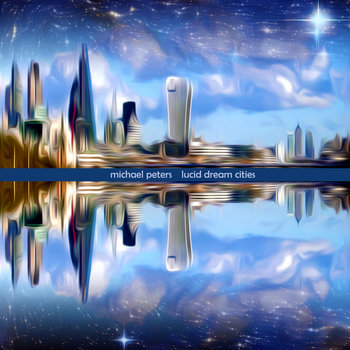 Lucid Dream Cities
Lucid Dream Cities
 Indeterminacy
Indeterminacy
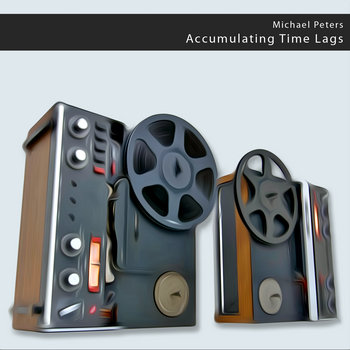 Accumulating Time Lags
Accumulating Time Lags
 Escape Veloopity 2009
Escape Veloopity 2009
 Escape Veloopity 2010
Escape Veloopity 2010
 Escape Veloopity 2011
Escape Veloopity 2011
 Escape Veloopity 2012
Escape Veloopity 2012
 Escape Veloopity 2013
Escape Veloopity 2013
 Live Veloopity
Live Veloopity
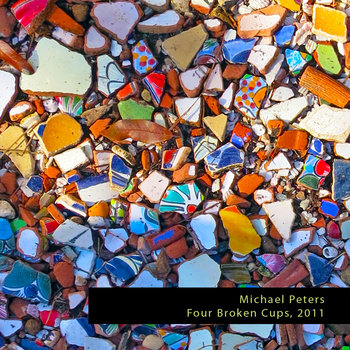 Four Broken Cups, 2011
Four Broken Cups, 2011
 Fading Memories
Fading Memories
 Vorstadtprinzessinnenklangwellen
Vorstadtprinzessinnenklangwellen
 meetings with remarkable sounds
meetings with remarkable sounds
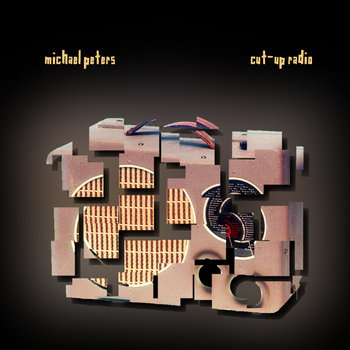 Cut-Up Radio
Cut-Up Radio
 CT Collective Works (free download)
CT Collective Works (free download)
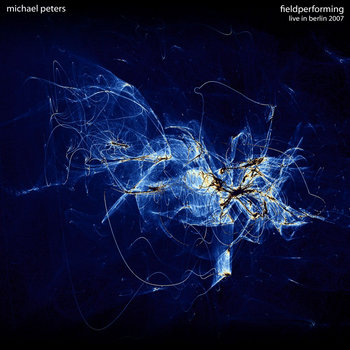 Fieldperforming (Live in Berlin)
Fieldperforming (Live in Berlin)
 Impossible Music
Impossible Music
 Stretched Landscape #1
Stretched Landscape #1
 Stretched Landscape Remix Project
Stretched Landscape Remix Project
 Computer Music & Fragments
Computer Music & Fragments
 Continuous Guitar Loop
Continuous Guitar Loop
 MY2K - Sound Diary for 2000
MY2K - Sound Diary for 2000
 Escape Veloopity
Escape Veloopity
 Veloopity Leftovers
Veloopity Leftovers
 Ambient Veloopity
Ambient Veloopity
 Soaring in Circles
Soaring in Circles
 Camera Obscura - The First Journey
Camera Obscura - The First Journey
 Sonic Asteroids
Sonic Asteroids
2013 with Lucid Brain Integrative Project and Amy X Neuburg
Web | Facebook | Youtube | Blog | Soundcloud | Vimeo | Field Recordings | Bandcamp | Twitter
Loopfestival Cologne 2013 Photo Rainer Roeingh



+Rainer+Roeingh.JPG)